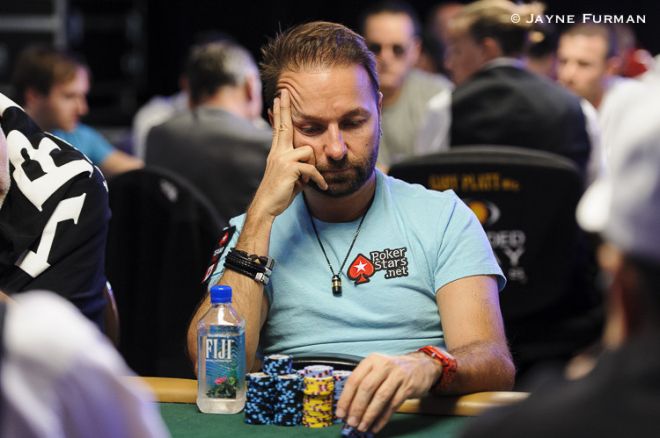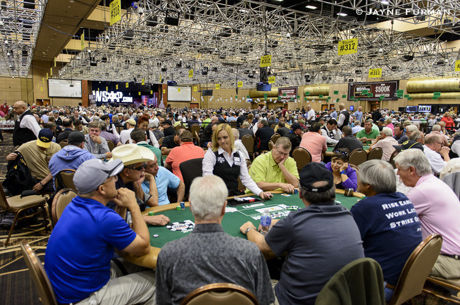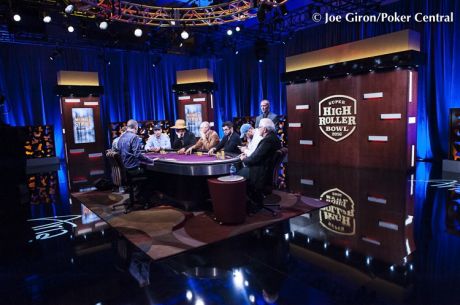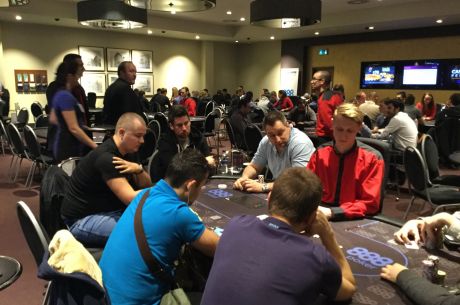Is Mind Control in Poker Possible? Yes, It Is

Last week I binge-watched the Netflix series Jessica Jones set in the Marvel comic-book universe. The title character is a private investigator in Hell's Kitchen who just happens to have phenomenal strength (and a really bad temperament).
The villain throughout the first season's story arc is a man known only as Kilgrave. His superpower is his ability to control completely other people's actions just by telling them what to do.
In Episode 6, we learn at least one of the ways that Kilgrave gets money to fund his evil plots �� poker. He goes to a high-stakes underground game, where they appear to be playing hold'em. After two down cards are dealt all around, he tells the other players, "Let's have everybody go all in." They are unable to resist his command.
He asks the dealer how much is in the pot. A little over a million dollars, she says. Kilgrave says that's enough for what he plans to do.
Then, even before a flop is dealt, he tells the players, "Let's make it really crazy. Everybody fold." They do. Kilgrave cheekily exclaims, "Oh, I guess that makes me the winner" �� and shows them his 7?2?. He scoops up the cash and leaves.
Now, the realist side of me �� which probably shouldn't be watching TV shows about superheroes to begin with �� wonders why Kilgrave bothers with the card-playing at all. Why not just walk in and say, "Give me your money"? But the poker player in me thinks, "That's a power that could be really useful in some tricky hands."
I suppose every player has, more than once, been running a pure bluff, and telepathically tried to control an opponent's choice. We scream inside our heads, "Fold!" Or, conversely, when holding the stone-cold nuts, "Call!" Fat lot of good it does.
Daniel Negreanu is not exactly Kilgrave, either in mind control or in evilness. But he does have moments of being able to manipulate opponents so well that he might qualify to become Kilgrave's apprentice �� y'know, if the whole making-millions-of-dollars-playing-a-game thing doesn't work out for him.
Here's a classic example, from the 2010 European Poker Tour London Main Event. Negreanu, holding 10?9?, has called Angel Shlomi's bets three times. Now he faces a final bet on the river, with the board showing 9?5?4?Q?8?.
Surprisingly, Negreanu raises. Clearly not expecting this, Shlomi starts to think about what to do. And it's here that Negreanu pulls a Kilgrave-like move. He tells Shlomi, "I figure you've got aces or kings��. I'm thinking aces or kings."
He's right. Shlomi has K?K?. Here's the clip, if you've never seen it:
As commentator James Hartigan points out, "And Shlomi's now thinking, 'If you've read me for aces or kings, surely you can beat aces or kings. I have to fold.'" And he does! This is the poker equivalent of Obi-Wan Kenobi saying, "These are not the droids you're looking for."
So mind control at poker really does happen, at least sometimes �� more often for the greatest players than for you or me.
But the mind that's most important to control at the poker table is not that of any opponent. It's your own. If you are not in control of your mind, you cannot employ it to do all the things it needs to be doing.
You have to control your mind so that it is not dwelling on the bad beat from an hour ago, or the NBA Finals game on the television, or the annoying, nonstop chatter from the drunk guy across the table, or how badly you need a win tonight to break your losing streak.
When I begin talking about the importance of controlling one's own mind while playing poker, I should just shut up and turn the column over to Tommy Angelo, who has written more eloquently on the subject than anybody else I can think of.
In an article for PokerNews in March, Angelo asked: "What gets in the way of your listening? Your thoughts do. Why do you get upset? Because you think thoughts that are upsetting. Why do you lose focus at the poker table? Because your thoughts are streaming by, taking you with them, into the past and future."
"The thing to do is to learn how to stop your thoughtless thinking, whenever you want to, in order to clear room for something better," he continued. "If you want to be as good as you can be at poker, you need a mind that is so strong it can stop itself."
Angelo elaborates on this point in the last section of his book, Elements of Poker, and gives the reader techniques for doing this, particularly by deliberately controlling one's breathing:
You can actually use the body to persuade the mind that everything is fine. The mind �� which only a moment before was in an uproar �� can't help but notice that suddenly the indicators from the body are saying that all is well. The lungs are inflating and deflating evenly and slowly. The mouth is closed. Whatever the trouble was, well, it seems to have passed. 'I suppose I can relax now too,' the mind says to itself. And the mind settles��.
The primary cause of tilt is mental pain, such as anger, fear, regret, injustice, disappointment, and shame. The only place that your mental pain exists is inside your mind. The only thing that your mind does is think. When you place attention on your breathing, you take it away from your thinking.
So that's a start to your practice of mind control at the poker table. That alone won't get you to Negreanu's mastery of mind tricks, let alone to a Kilgrave-level control of others. But if you can learn to control your own mind, there's no telling how far you might go.
Robert Woolley lives in Asheville, NC. He spent several years in Las Vegas and chronicled his life in poker on the ��Poker Grump�� blog.
Want to stay atop all the latest in the poker world? If so, make sure to get PokerNews updates on your social media outlets. Follow us on Twitter and find us on both Facebook and Google+!









